Nigerian president Muhammadu Buhari has only two enemies: terrorism and corruption. And one faithful ally — oil.
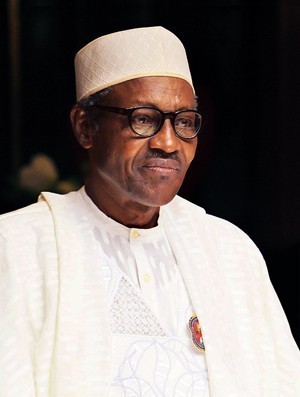 On motorcycles and motor boats during few days they furrowed the entire Nigeria. The mission of the experts in statistics, according to The Wall Street Journal, was unusual: this time the object of their attention was not ordinary in the local landscape oil derricks, but internet cafés, IT-shops, services and film industry. It was the key to success: numbers and reports that had not been formally taken into account.
On motorcycles and motor boats during few days they furrowed the entire Nigeria. The mission of the experts in statistics, according to The Wall Street Journal, was unusual: this time the object of their attention was not ordinary in the local landscape oil derricks, but internet cafés, IT-shops, services and film industry. It was the key to success: numbers and reports that had not been formally taken into account.
The excitement was triggered «from the top». The fact is that the UN organization recommends to revise the calculation base of the GDP of each country every five years. Nigeria had not done it since 1990. Now the fast growing telecommunications industry and the film industry were included into statistics. The famous Nollywood has bypassed the USA conceding only to the Indian Bollywood by the number of film premieres. The GDP has almost doubled automatically from 264 billion to 453 billion. In April 2014, Nigeria, the largest oil producer in Africa, outran South Africa in terms of GDP volume, became the leading economy in the continent, as it was officially announced by the Finance minister Ngozi Okonjo-Iweala.
What has changed apart from the numbers? “Recalculating of the GDP is cosmetic. But we hope that it will increase the investment attractiveness of Nigeria”, — said the analyst of the group “Nigeria Economic Summit” Chuba Ezekwesili. And he was absolutely right.
But there was another reality. According to the World Bank, about 80 percent of the population continued to exist on $2 per day. The north of Nigeria was terrorized by the radical Islamist group Boko Haram.
The country had been preparing for the new presidential elections scheduled on the 14th of February 2015, but it had to be postponed for six weeks for security reasons. The opposition harshly criticized the current president Goodluck Jonathan for failure to deal with the threat. On this wave Nigeria made a bid on a “strong hand”. Jonathan’s opponent — Muhammadu Buhari — won receiving 2.5 million votes more than his competitor. His inauguration took place on the 29th of May 2015.
Military man
By ethnicity Buhari is Fulani. He is a sunni. He was born on December 17, 1942 in a family where there were 23 children, in the town of Daura (Katsina Province, since 1987 — the State of Katsina) in the north of Nigeria. He was the youngest. His father died, when Muhammadu was not even four years old.
Leafing through the pages of his biography, one can not overlook: the guy was not only gifted — he was clearly favored by the destiny. After graduating from high school in 1961, this provincial boy easily entered the Nigerian Military School in Kaduna. And in October of the same year he was sent to the Cadet School in Aldershot (the United Kingdom). He graduated in 1963 and then passed training courses in Her Majesty’s Military Transport School in Borden in 1965.
Looking ahead, we should note that Buhari completed his military education in 1973, at the Officers’ College courses in Wellington (India). And while he was learning the theory of the military career through practice, he skyrocketed upwards.
In 1963 as he received the rank of sublieutenant, Buhari was appointed to be a commander of a platoon of infantry battalion in Abeokuta. In 1964 he transferred to the post of the officer of the transport service of the Lagos Garrison. In 1967, he was promoted to the rank of senior staff officer of the Brigade Infantry Division. He commanded the combat units of the federal armed forces during the civil war (1967 – 1970), which was provoked by the separatists of the self-proclaimed “Republic of Biafra”. At that moment USSR provided the Government of Nigeria with significant political and military assistance.
In January 1974 colonel Buhari became the chief of the Service of transport and supply of the Armed Forces of Nigeria. But in 1975 there was a military coup (a phenomenon that is historically common by the Nigerian standards), and the head of a new military government brigadier Murtala Mohammed appointed Buhari at the place of the military governor of the North-Eastern State of Nigeria, which included a vast territory of modern states of Adamawa, Bauchi, Borno, Gombe, Yobe and Taraba.
The first political management experience did not last long: as a result of the reform of the administrative and political system of the federation held in February 1976, the state was abolished.
And Buhari received a new assignment — this time from another prime minister, the chief of staff of the Armed Forces of Nigeria brigadier Olusegun Obassanjo. He was inducted into the Supreme Military Council and the Federal Executive Council (the military cabinet of the government) at the position of the Commissioner for Oil Resources and Energy.
From oil to oil
In 1978 Buhari became the head of the Nigerian National Petroleum Corporation created the same year. National property was taken under a tight control that the military politician and economist tried not to lose from his hands in the future.
In July – August 1979 general elections were held in Nigeria. The leader of the National Party Shehu Shagari became the president. The civil president dissolved the Supreme Military and Federal Councils. That, however, did not affect the Buhari’s career. Moreover, he was promoted to Major General.
Civil authorities did not accustom in the country: the society was apparently too used to strong hands. The growth of corruption — against the background of worsening of the inter-regional and inter-confessional conflicts — led Shagari to the drop in popularity, including among the military men and elites.
On the 31st of December 1983 a military coup occurred in Nigeria again. The Supreme Military Council has been restored, and its chairman and the state leader, became Muhammadu Buhari.
Twenty months of Buhari’s reign passed under the slogan of the optimization of the budget expenses, the struggle for discipline and the war against corruption that has engulfed by this time almost all spheres of the government. For all these three matters Buhari had to take extreme measures. He broke up his relations with the International Monetary Fund because it demanded the devaluation of the naira for 60%. During the short period of his reign hundreds of influential politicians, civil officials and business leaders were accused of corruption, were arrested and convicted. The British media wrote that he, being an advocate of military discipline, forced officials, who were late for work, jump as frogs. Students who used cribs at the exams were threatened with prison. For the use and the trade of drugs the penalty was execution. Press was meek.
Buhari was criticized both inside the country and abroad, accused in authoritarism and human rights violations, pressure on the media, and harassment of the opposition. But none denied Buhari in his reputation of a hard but honest and principled officer and a patriot.
But reputation is the reputation, and power abhors sentimentality. Military people who were close to Buhari, gradually thronged from the highest state positions their colleagues, among whom there were many members of the Christian south of the country. Conflicts began among the military men. What was the result? Conspiracy. On the 27th of August 1985 a new military coup occurred, organized by Major-General Ibrahim Babangida, a native from the north. Buhari was arrested and remanded in prison until the end of 1988.
But, as we have already mentioned, Muhammadu Buhari is not only a high professional, he is clearly favored by fate.
In 1994, by the suggestion of a new military leader of Nigeria, General Sani Abacha, he headed the Oil Trust Fund and directed it until 2000.
Four times candidate…
In 1999 Buhari returned to the active political life and four times ran for the post of the president of the country.
In 2003, 2007 and 2011 according to the results of the elections he took second place after the candidates of the ruling People’s Democratic Party. In 2003 he was nominated by the All Nigeria People’s Party and lost to Olusegun Obasanjo, gaining 32.2% of the votes. In 2007, Buhari was renominated by the same party, but received only 18.7% of the votes and lost to Umaru Yar’Adua. In such situation a part of the All Nigeria People’s Party agreed to enter into a coalition government, and this provoked a split in its ranks and some members, including Buhari, left the party. In 2009, he was one of the founders of the new party called the Congress for Progressive Change (CAT), which later supported him as a candidate for the presidential elections 2011. And he again took the second place after Goodluck Jonathan. This was preceded by the dramatic events. According to Reuters, Buhari refused to accept the preliminary election results and demanded a recount. And shortly after the information of the victory of Jonathan appeared, disturbances broke out in the northern part of Nigeria.
On the eve of the presidential and parliamentary elections in 2015 three main opposition parties — the Action Congress of Nigeria (ACN), the Congress for Progressive Change (CPC), the All Nigeria Peoples Party (ANPP) and a faction of the All Progressives Grand Alliance (APGA) formed a new party — the All Progressives Congress. In December 2014 Muhammadu Buhari was again nominated by the opposition. On the eve of the election he was supported by the popular incountry’s former president and former political opponent Obasanjo.
… And the president
On the 28th of March 2015 Muhammadu Buhari defeated the current president Goodluck Jonathan, receiving almost 54% of the votes.
Buhari learned the lessons of his previous political duels. In contrast to the 2011 campaign when he spoke in favor of the approval of Nigeria Sharia law, before elections in 2015 Buhari, on the contrary, assured the electorate that he had no intention to Islamize Nigeria and respected the secular nature of the state. He also blamed president Jonathan in passivity and inability to counter the threat of radical Islamism and terrorism emanating from the terrorist organization Boko Haram. The president already had the experience of “dialogue” with the militants. On the 23rd of July 2014, during his visit to the city of Kaduna, he became the target of a terrorist attack. As a result of the explosion in the market place about 50 people were killed. Buhari miraculously was not injured.
The fight against terrorism was a priority of his presidential program.
Nigerian president, a retired Major-General Muhammadu Buhari is a decent family man: since 1989 he has been married for the second time with Aisha Buhari. His first wife, Sainftu Haji Buhari, with whom he was married from 1971 to 1998, died on the 14th of January 2006. From each marriage Buhari has five children.
However, the whole Nigeria is now his family.
Agenda
In the politically correct Western world the reputation of any strong ruler a priori can not be painted in pastel colors. Muhammadu Buhari gets it from the Western media as well. But there are nuances.
Once, for example, Buhari has quarreled with the IMF, and for that he was severely criticized by this influential organization. But that was in the 80s. Now Nigeria is Africa’s largest economy.
In January 2016, Christine Lagarde, the head of the Fund personally arrived with a visit to Abuja. She met with president Buhari, minister of Finance Kemi Adeosun, director of the Central Bank of Nigeria Godwin Emefiele, as well as with the representatives of the National Assembly, civil society and business. The IMF now desires to strengthen the partnership between the Foundation and the largest economy of the continent. According to the opinion of the Fund, the effects of the fall of the world oil prices could affect the growth rate of the Nigerian economy: in 2015, GDP growth for 4% had been predicted but it reached 2.25% less than expected. It is predicted that it will get to 3.25% this year, which is below the average growth in amount of 6.8% observed in 2004 – 2014.
Buhari who has rich experience in management of the oil industry has his own answer for this.
“Mr. president is going to divide the National Petroleum Company of Nigeria (NNPC) into two companies. One of them will be an independent regulatory body and the second one will be the object of investment,” — quotes Reuters the representative of the president Femi Adesina. The reason for the separation of NNPC became a favorite hobbyhorse of the president the anti-corruption activities. Buhari has always expressed the intention to take under careful control the oil industry. The NNPC, as we recall, brings the Government of Nigeria about 70% of income.
In 2015 control after the capital movements was introduced in Nigeria — IMF urged Buhari to seek alternative methods. The first control measures were taken even before Buhari became a president, but he did not only continue this policy, he also supported it: during his reign it acquired a distinct sense of anti-corruption.
Buhari does not intend to seek help from the IMF at least directly. He intends to make reforms himself. But it will take time and some financial pause to make them work. According to media reports, Nigeria appealed to the World Bank and the African Development Bank for loans in amount of 3.5 billion dollars (2.5 billion and 1 billion dollars, respectively), which will help the country to cope with the budget deficit, formed in connection with the fall in oil prices. The loan taken from the World Bank, as sources from the financial organizations claim, will become a part of the “development policy”, which the bank will use to help countries that are facing short-term financial problems. Such loans usually can be issued regardless of the IMF.
With the help of the loan the government of president Buhari expects to cover part of the public deficit which is reaching 15 billion. However, according to the interview with the minister of Finance Kemi Adeosun to the Financial Times newspaper, after three year pause the Government plans to return to the stock market.
Meanwhile, multinational companies are increasing their presence in Nigeria the number of inhabitants of which will surpass that of the United States in 2050, as the UN organizations forecasts. The country is expanding the business network of the Western fast food (KFC), manufacturers of mass demand production (Procter & Gamble) and cars (Nissan). There are other notable achievements: Nigerians drink more Guinnes than people in Ireland, and the consumption of champagne is second only after France, writes the WSJ.
According to DHL CEO in tropical Africa, Charles Brewer, investors should pay attention to infrastructure projects: the country is full of untapped opportunities, its potential is huge.
Senior research officer of the Center for African Studies of the Russian Academy of Sciences, Nikolai Shcherbakov, on the other hand, advises the Russian investors to focus on educational projects. “We need to understand that by investing in education in Nigeria, we can feel ourselves not competitors but partners — he said. — The more we are now focused on the export of technology and educational initiatives, the sooner the huge and rich African region will respond to us a hundredfold.”
Russian investors, meanwhile, are bidding on energy, which fully meets the needs of the Nigerian side.
Lukoil, Gazprom and other acting figures
McKinsey Global Institute predicts that in the next 15 years, the economy of Nigeria has the ability to grow three times stronger. In 2030, the GDP of the state is able to reach 1.6 trillion dollars that will allow the country to enter the twenty largest economies in the world. However, as it is believed in the Buhari’s government, that it can be achieved with the full use of Nigeria’s potential, maximization of the growth in the key sectors of the economy and attraction of the foreign investment.
Shortly after Muhammadu Buhari inauguration negotiations with the Russian business have revived. For example, with “Rosatom” — about building of four nuclear power plants worth $ 20 billion. According to Bloomberg, Chairman of the National Atomic Energy Commission of Nigeria Franklin Erepamo Osaysaya, the Russian company will have a controlling stake in the project. According to the representative of Rosatom, a memorandum has not been signed yet, but contacts between officials have actually recommenced. The framework agreement on the construction of nuclear power plants in Nigeria, as we recall, was concluded as early as 2012.
Nigeria LNG is willing to cooperate with Gazprom and does not rule out the possibility of a long-term contract for the sale of LNG. This was announced in December 2015 in the Nigeria LNG company. Russian company, showing interest in the projects in South Africa and Cameroon, is literally getting beat off from the competitors in Nigeria. “If Gazprom offers cooperation, Nigeria LNG would not refuse,” — the company says. Executive Director of Gazprom Marketing & Trading F. Barney did not rule out the possibility of cooperation with the Nigerian plant. There is a lot of work: the proven gas reserves in Nigeria make up 5.1 trillion m3, and potential make up 17 trillion m3.
Finally, oil is a national treasure, which is under the tireless control of the president Buhari.
Russian “LUKOIL” plans to expand its activities in Nigeria. This was announced at the International Economic Forum in Davos in January 2016 by the head of the company Vagit Alekperov: “We had a meeting with the minister of Oil of Nigeria. Our delegation will meet with the president of Nigeria, Buhari, with the minister of Oil to discuss the further expansion of our activities”. We will note that LUKOIL is working in Nigeria for more than a year.
Afterword
... This story does not involve a detailed analysis of investment opportunities in Nigeria. It has other goals and — most importantly — another hero: president Muhammadu Buhari. Where will he lead his country rich in mineral resources? One can say for sure: the old soldier would not give up his principles.
This is — almost literally — a recent report by the AP agency: president of Nigeria Muhammadu Buhari, accused the adviser of the former president in stealing of two billion dollars, intended for the purchase of weapons and combat against radical group Boko Haram. Nigerian authorities accuse Sambo Dasuki (the name of the accused, who was managing questions of national security in Goodluck Jonathan’s administration) in the conclusion of the supposed contracts for the purchase of 12 helicopters, four military aircrafts and ammunition that have not been obtained ...
The president of Nigeria Muhammadu Buhari had and still has two enemies: terrorism and corruption. And one faithful ally — oil.
 On motorcycles and motor boats during few days they furrowed the entire Nigeria. The mission of the experts in statistics, according to The Wall Street Journal, was unusual: this time the object of their attention was not ordinary in the local landscape oil derricks, but internet cafés, IT-shops, services and film industry. It was the key to success: numbers and reports that had not been formally taken into account.
On motorcycles and motor boats during few days they furrowed the entire Nigeria. The mission of the experts in statistics, according to The Wall Street Journal, was unusual: this time the object of their attention was not ordinary in the local landscape oil derricks, but internet cafés, IT-shops, services and film industry. It was the key to success: numbers and reports that had not been formally taken into account.

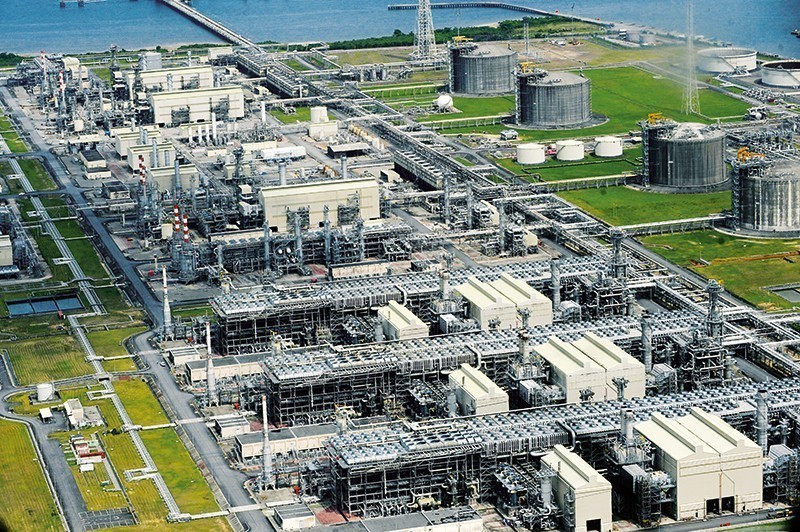 How to maintain production
How to maintain production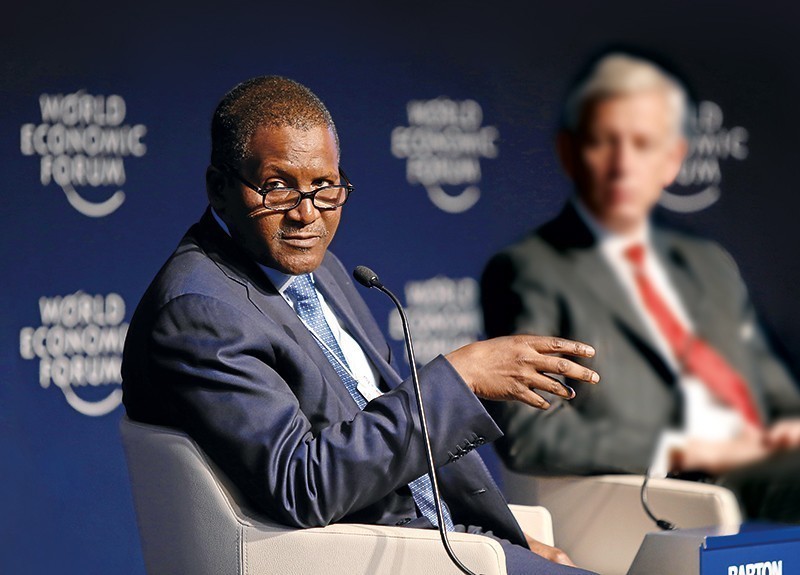
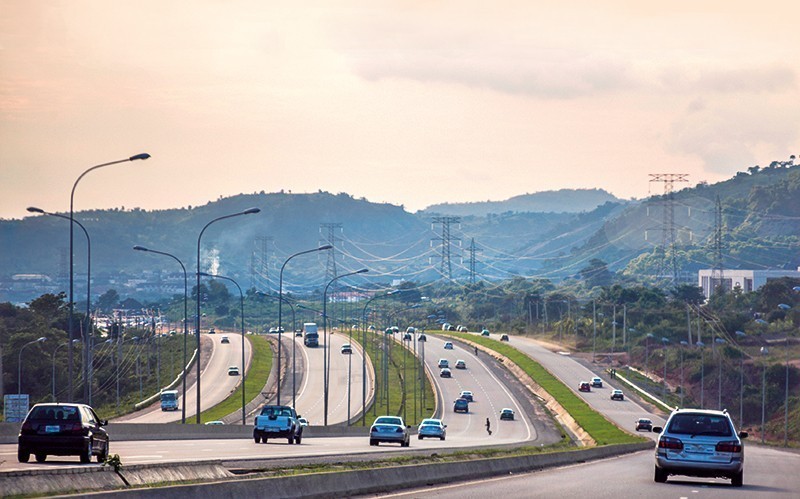
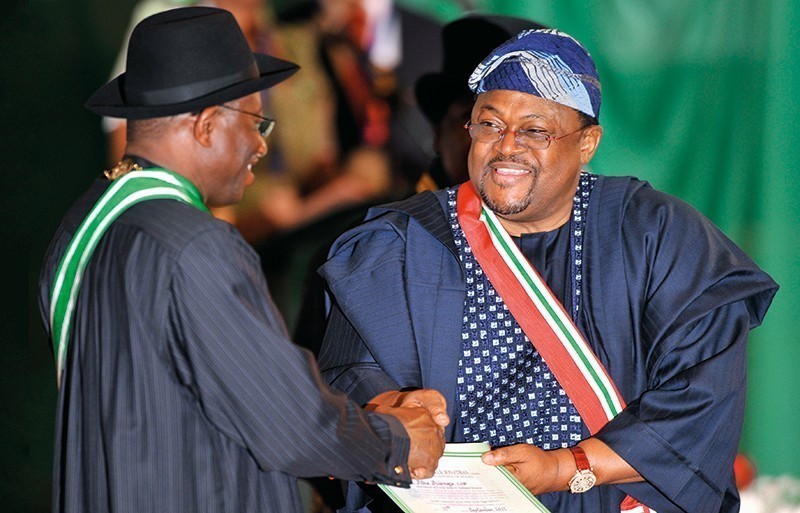
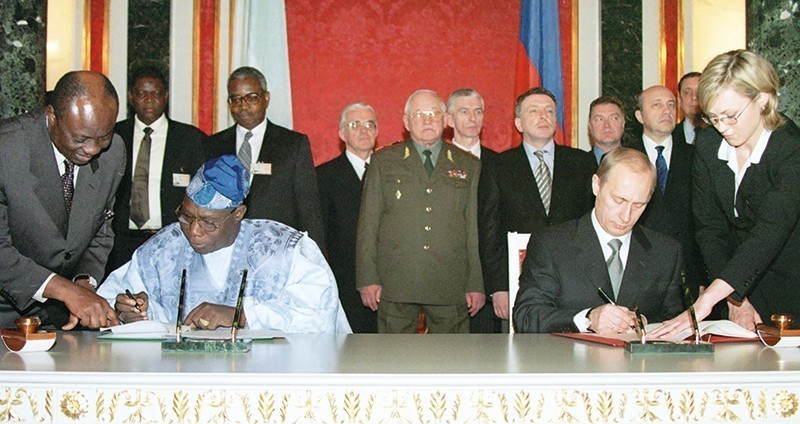
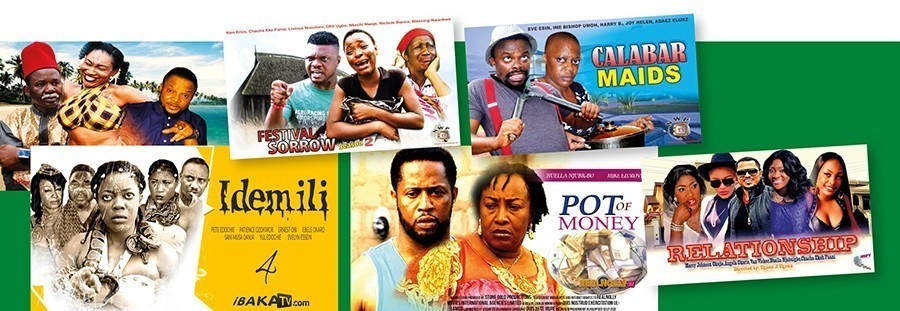
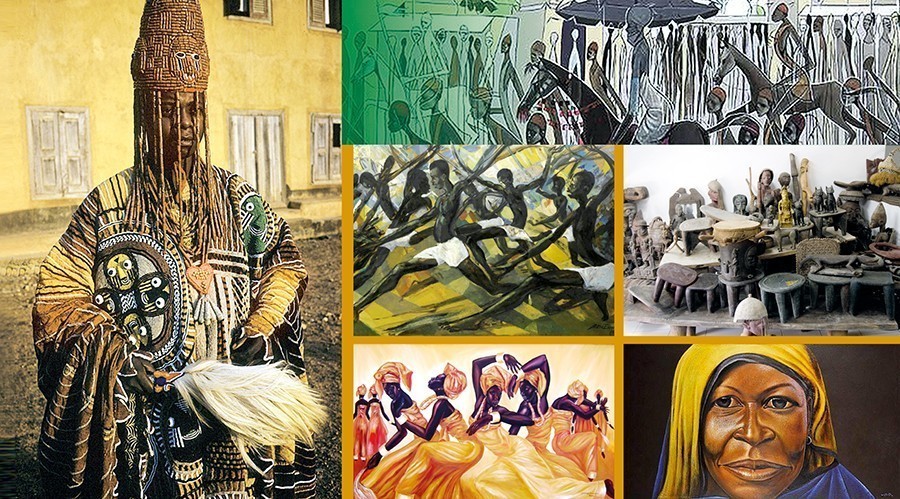
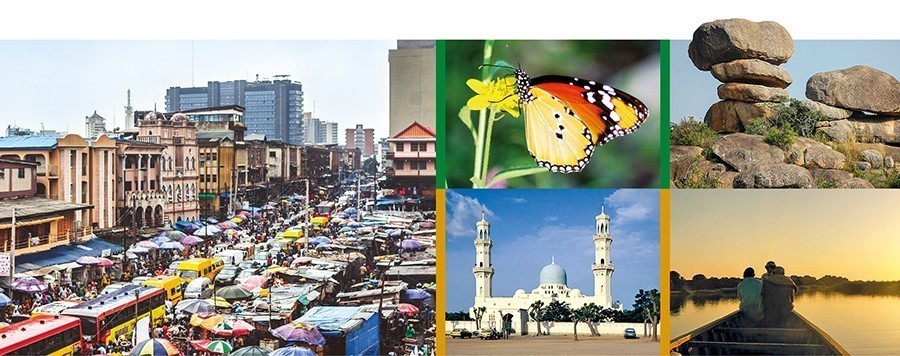 Lagos city
Lagos city